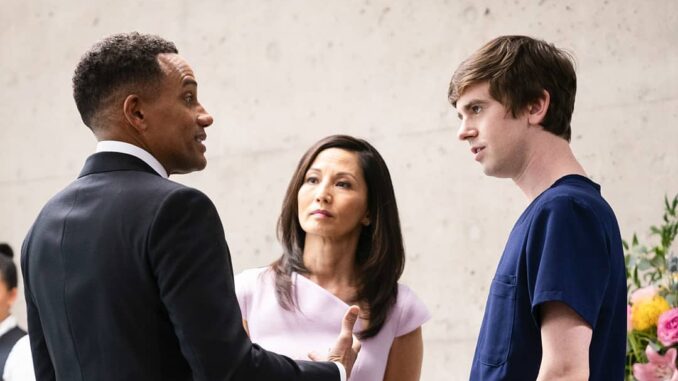
When The Good Doctor first premiered, audiences were captivated by Freddie Highmore’s Shaun Murphy — a brilliant young surgeon with autism and savant syndrome. His photographic memory and extraordinary diagnostic skills made him a medical prodigy, but what has kept viewers loyal through seven seasons is not his genius — it’s his humanity. Over time, Shaun’s journey has evolved from a story of intellect to one of emotional growth, empathy, and belonging.
Freddie Highmore’s portrayal of Shaun began as a character study in exceptional intelligence. In the early seasons, he was defined by his precision and logic, sometimes at the expense of emotional connection. His colleagues often underestimated him, struggling to see past his condition. Yet as the series progressed, The Good Doctor transformed into something more profound — an exploration of how someone who sees the world differently can also teach others to feel more deeply.
Through relationships — particularly with Dr. Glassman (Richard Schiff), Lea Dilallo (Paige Spara), and his fellow residents — Shaun’s world began to open. His friendship with Glassman, his mentor and father figure, is one of the most powerful dynamics in the series. Their bond mirrors a blend of guidance, frustration, and unconditional love. When Shaun falters, Glassman’s faith anchors him; when Glassman weakens, Shaun’s logic becomes his lifeline. It’s a mutual evolution that defines both men.
Shaun’s romantic journey with Lea marked a new chapter in his character development. For a man who once struggled to interpret social cues, navigating love, marriage, and fatherhood revealed the layers of emotional intelligence hidden within him. Highmore portrays these milestones with subtlety — never exaggerating Shaun’s discomfort, but letting growth appear through small victories: a gesture, a smile, a moment of vulnerability.
What makes Shaun’s evolution so moving is its realism. The Good Doctor doesn’t treat his emotional progress as a miraculous “fix” or a cinematic cure. Instead, it celebrates the process — the setbacks, the breakthroughs, and the quiet resilience of someone learning to balance intellect with heart. Through Shaun, the show reminds viewers that emotional connection isn’t instinctive for everyone, but it is attainable with patience and trust.
Freddie Highmore’s performance continues to be the emotional heartbeat of the series. His ability to layer Shaun’s intellect with innocence, his awkwardness with sincerity, has turned what could have been a one-dimensional role into a deeply human portrait. He doesn’t just play Shaun — he understands him.
By season seven, Shaun Murphy is no longer just “the good doctor.” He’s a man who has learned to love, grieve, forgive, and lead — all on his own terms. And in doing so, Freddie Highmore has given television one of its most compelling portrayals of human growth: not the kind found in textbooks or surgeries, but the kind written quietly in the heart.
